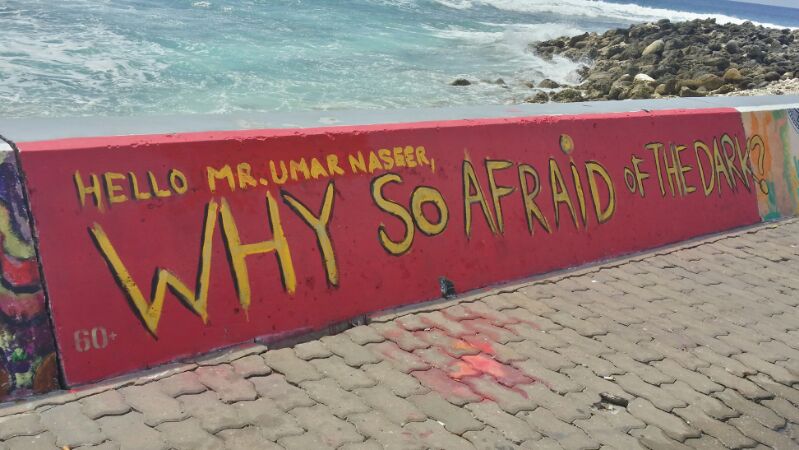A movement representing Maldivian youth has raised the alarm over a lack of arts and creative opportunities after the government cancelled plans for Earth Hour celebrations.
“Without proper preventive measures, we would see a decline in creativity and expression, as well as freedom of assembly and celebration of global causes,” Dhi Youth Movement, a non-governmental organisation, said in a statement.
Young Maldivians had planned to mark Earth Hour, an annual environmental campaign, with a music show and other celebrations in Male’ on Saturday but the government banned the events on security grounds after a spate of stabbings in the capital.
“We would also like to express our disappointment with government’s decision to cancel the Earth Hour celebrations on perceived potential security concerns,” said DYM.
Despite the ban, a 29-year-old man died after being stabbed outside the Indira Gandhi Memorial Hospital, one of the busiest hospitals in the city, on Saturday night, in the fourth murder so far this year. No one has so far been arrested over the crime.
“As witnessed by last night’s crime, we have reconfirmed that crime happens regardless of whether or not the lights are on, even in front of police stations and hospitals,” DYM said.
People who had planned to attend the celebrations expressed their discontent online.
“Yesterday, government stopped a bunch of people from making a prayer for President Nasheed after the Friday congregational prayer. Today it prohibited holding Earth Hour events for ‘security reasons’. Tomorrow it’ll ban funerals,” one said.
Another commented: “Security concerns regarding violent crimes during the day time has led to the Home Ministry issuing a statement to enforce planetary laws to turn off the sun at 10am.”
A youth leader wrote: “This much crime in such a small place, is scary, but the only security threat I see is the fact that no proper proactive measures are being taken to combat them.”
Earth Hour is hosted by Earth Hour Maldives collaborating with Scouts Association of Maldives, who outsourced the event to Empire Events, a recently established event management company. Lights are traditionally turned off for Earth Hour, while those taking part celebrate by candlelight.
Despite the event’s official cancellation, some members of the public decided to celebrate anyway.
Concerned youth and artists turned up to enjoy the hour outdoors, while children drew in chalk in a co-ordinated event at the helipad.
Young people lit candles reading “60+”, which stands for the 60 minutes of the Earth Hour.
DYM said that a fall in numbers of students enrolling in the arts stream — students can choose between arts, business and science streams aged 13 or 14 — was a sign of the declining position of arts and creativity. They called for a community where expression and art can thrive, without it involving “knives and crime”.
The group called for the government and authorities to do their best to address the root causes of the current gang violence so that temporary curfews can be lifted.
However, Dhi Youth Movement also noted that they had not been consulted on policy level discussions about youth by government bodies, and said they hoped the government would consult civil society more in decision making.
